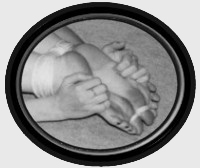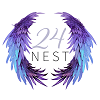Introduction:
There is a perception that writing short stories, particularly erotic stories, requires little or no effort. While this is perhaps literally true, the same could be said for erotic artwork -- yet few of us would dare to publicly display a poorly executed drawing.
With the explosion of narrowly-targetted sexual interest groups on the Internet, there has been an equal growth in the production of amateur erotic fiction to feed that interest. Many of these stories are as well or even better written than anything available from the commercial markets. All too often, however, such work stumbles into one of the pitfalls common to most novice writers. This guide is not intended for those with a professional interest, who have probably already discovered and overcome such pitfalls. Rather, this is for the use of the amateur, who likely has little interest in being professionally published, but who wishes to contribute to the body of work available in his or her particular genre.
Send your e-mail comments to:
[email protected]
THE BASICS
Spelling and Grammar:
One of the main criticisms with most novice writers is a disregard for the proper spelling and grammar. Yes, writing is a creative enterprise, but before you break the rules, you should at least know what they are. Nothing will draw a reader back out of a story faster than a glaring spelling or grammatical error. Learn the basics first. Invest in a good dictionary and thesaurus, the paper kind. And not one of those little pocket editions either.
Quotation Marks:
Learn to use quotation marks properly. Dialogue is a crucial element in most fiction, and deserves correct treatment. "Remember," he said, "that closing quotation marks go on the outside of the punctuation, not the inside."
Paragraphs:
Always use proper paragraphing! Paragraphs are NOT optional! It is extremely difficult to read a story which is simply one huge block of text. Not only is it hard to scan, but the lack of paragraphing creates confusion for the reader. Each paragraph in a story is a series of related thoughts; every sentence in a paragraph should relate to a single subject. If there is a new idea, begin a new paragraph.
Dialogue should be separated by paragraphs. Each time a different character speaks, this should start a new paragraph, even if it is only a single word.
Pronouns should be avoided in the first sentence of every paragraph when making reference to a person, place, or thing for the first time in that sentence. Use the full name of each person, place, or thing being referred to. Not only is this grammatically correct, but it helps to avoid confusion.
Punctuation:
Punctuation is your friend. It helps the flow of the words in the reader's mind, and it helps make the meanings clearer. Too much punctuation, however, is as bad as too little. Some of the most common errors made with punctuation are outlined below.
Punctuation [commas]:
Commas should be used to indicate a very brief pause in the flow of a sentence, and are normally used to link two related, incomplete thoughts (that is, to separate clauses in a complex sentence), to separate a list of items, or to separate adjectives and adverbs when there is more than one. Use commas sparingly. If there is any question as to its appropriateness in a given case, it is probably better not to use it. Too many commas can draw the reader's attention away and make a sentence difficult to scan.
Punctuation [semi-colons, colons, periods]:
Colons and semi-colons are vastly underused in most amateur fiction, when they could be used to great advantage. Do not be intimidated by them; their function is not a mystery, nor difficult to grasp. Colons and semi-colons are used to represent pauses in flow much the same way commas are used. A semi-colon (the ";" symbol) is a pause of "two beats," or about twice as long as you would pause for a comma. A colon (the ":" symbol) is a pause of "three beats," or about three times as long as you would pause for a comma.
Periods, also known as "full stops," represent a complete halt in the flow of a sentence, and are used to indicate the completion of a single thought.
Punctuation [elipses and elides]:
The elipse is possibly the single most overused punctuation mark by amateur (and many professional!) writers. The elipse is represented by three periods (or "pips") in a row ("..."). It is NEVER less than three or more than three. It is ALWAYS three.
An elipse is used to indicate an incomplete thought, and takes the place of a period. It should NEVER be used to represent a pause! If you wish to indicate a pause, a comma, semi-colon, or colon should be used instead. Generally, gramatically complete sentences should not end in an elipse. Only sentence fragments (those sentences which do not possess a subject, verb, and object) should end in an elipse.
Punctuation [question marks and exclamation marks]:
After the elipse, the question mark and exclamation mark are the most overused punctuation. It is almost never appropriate to use more than one exclamation mark, and it is NEVER appropriate to use more than one question mark. If you find yourself inclined to use more than a single exclamation mark, try describing the loudness of the sound instead; it will likely make for a better story.
When writing a rhetorical question in dialogue, it can be effective to avoid using the question mark. This nuance should indicate to the reader that the speaker is not actually asking a question, but is making a statement in the form of a question.
Punctuation [apostrophes]:
The apostrophe (the ' symbol) is used to show possessiveness or that a word has been concatenated. It is NEVER used to show that a word is plural! If one wishes to show possessiveness in a word which ends in an "s" then one adds an apostrophe, by itself, after the last letter. For example, to indicate that something belongs to Jess, one would use Jess'.
In a concatenated word, the apostrophe takes the place of the missing letter in the word. So, for example, "do not" becomes "don't."
There are certain exceptions, the most important as follows.
"Its" is used to show possessiveness. "It's" is a concatenation of "it is."
The possessive form of "her" is "hers."
PERSPECTIVE
The first thing you'll have to decide when writing a story is which perspective the story will be told from. For the beginner it is best to avoid the potentially risky literary trick of switching perspectives part-way through the story. The three major perspectives from which a story can be told are listed below.
Perspective [first person]:
In a story which uses the first person perspective, a narrator describes the action for us in his or her own voice. This can be a very effective technique when used well, but often reads like "What I Did On My Summer Vacation" if it is done badly.
Remember first that the narrator cannot describe what he or she did not witness or is not aware of. This is one of the weaknesses of the first person perspective. For this reason, it is recommended that beginners avoid the first person and stick to third person. If you are going to use first person, one tool which can be useful for avoiding this problem is telling the story in the first person from the perspective of more than one character, switching between characters as required.
In particular, avoid falling into the trap of beginning every sentence or paragraph with "Then I did this." If your story is nothing more than a laundry list of the narrator's actions, it would be much better to use third person.
Perspective [second person]:
In a story which uses the second person perspective, the story tells the reader what he or she did or is doing. "You did this, and then you did that," would be an example of second person perspective. It is with good reason that this is not an often-used perspective, since it requires considerable skill to keep it from sounding clunky and awkward. It is highly recommended that the beginner avoid using this perspective altogether.
There is a definite role for the second person perspective in erotic writing, however. Since the purpose of erotic writing is to sexually engage the reader, and since the easiest way to do this is to draw the reader into the role of participant within the story, second person enjoys a usefulness in the genre that it does not in most others. Be wary of overusing this tool, since its effectiveness diminishes with use.
Perspective [third person]:
Third person is the most common perspective used in stories, and is the easiest for a novice to master.
The most usual variation of the third person is known as "third person omniscient." With this perspective, the author writes from the effective perspective of God, able to look into each character's head and read his or her thoughts, moving from place to place and character to character with infinite speed. One weakness of this variation is that it removes the ability of the author to lie to the reader. Since the perspective is omniscient, all the statements made in the "voice of God" must be absolutely true. It is difficult, though not impossible, to maintain secrecy from the reader; this must be done by omission, and it must be done cleverly or the reader will become suspicious and any surprise or tension will be lost.
A second variation is the "third person semi-omniscient." In this case, while the author writes from the effective perspective of God, it is with limitations. For example, the thoughts and motives of the characters may not be available by the author. This perspective can be useful when trying to maintain some mystery in a story, since it allows characters to hide things from the readers without drawing attention to it.
The other major variation of third person involves a fallible, non- omniscient perspective. Using this voice, the author can actually state deliberate lies to actively fool the reader. For example, to keep the gender of a character a mystery, the author may refer to a "him" as a "her" and vice versa, until this subterfuge becomes known by the characters in the story. This can be a difficult perspective to use, and it is recommended that the novice avoid it.
TENSE
One of the most common mistakes of amateur writers is confusion of tenses. Make absolutely certain that you use the same tense all the way through. If your story is told in past tense, it should remain in the past tense. An experienced author may be able to get away with breaking this "rule" as a stylistic flair or literary tool, but this requires a great deal of expertise and should be avoided by anyone who lacks extensive experience.
Past Tense:
For the beginner, past tense is the best option. It is easiest to master, and is familiar to all readers. Having already happened, it allows the author to shift backward and forward in time as required to tell the story.
Present Tense:
Present tense can be an extremely effective tool when used right, since it drops the reader right into the action, and gives the story a sense of immediacy, particularly when combined with first or second person. This is a difficult ploy to use, however, as it requires a great deal of skill to maintain proper pacing and flow. It should absolutely be avoided by the novice. This is NOT a tool for the beginner to use, and in the wrong hands can make a story painfully unreadable.
Other Tenses:
While I have never seen a story written in the future tense, it is at least theoretically possible. Such a story would require incredible skill to write properly, and would always be awkward for the reader. Do not use the future tense.
STYLE
This is by no means a comprehensive guide to style, since every author will eventually develop his or her own. This section will lay out a few of the more basic elements of style, and point out a few of the most common stylistic mistakes made by novices.
Character Descriptions:
Describing the appearance of a character as if he or she was being written up in a police report is a common mistake. There are far better ways of telling readers what a character looks like than giving them a rundown of height, weight, build and hair colour all at once on first introducing them. One method many writers use is to have the character look into a mirror at some point, describing what the character sees.
One of the major tenets of fiction writing is: "Show me, don't tell me." By this, what is meant is rather than baldly stating a fact within a story, the fact should be shown to the reader through the actions or dialogue of the characters. For example, rather than stating that a character is rude, it is better to have the character ACT rude and allow the reader to draw his or her own conclusions. This can also apply to physical descriptions of characters; instead of telling the readers that a character is physically attractive, try having other characters within the story react to that character in a way that tells the reader the same thing. Your story will read and feel more natural.
Character histories should be handled in a similar way. Rather than simply informing the reader of a character's background, allow it to be revealed a bit at a time throughout the course of the story. This will heighten reader interest, and bestow a hint of mystery.
Erotica Versus Pornography:
Erotica is not pornography, though it can contain pornography. The primary difference is that the single purpose of pornography is to sexually arouse the reader, period. There is not much of a plotline, if any, and there is no character development. Erotica, on the other hand, tends to have a genuine story, which helps to emphasize the erotic elements. There may be character development through the course of the story, and there is a much greater emphasis on the thoughts and emotions of the characters. Make sure you know which of these you are writing before you start.
Story:
Remember that first and foremost, a story must be a good read. We read Homer's Iliad thousands of years later because it's a great story, not because it was a paragon of style, or sent the right moral message. All the clever wordplay in the world won't help you if you don't have a story which will capture the reader's imagination. And, vice versa, if you can capture the reader's imagination, a whole host of literary sins can be forgiven.
The temptation is to get right into the "good bits" and forget about the rest as unimportant. You will find, though, that the story which surrounds the "good bits" can help to heighten the eroticism. This also allows the sexual tension in the story to build, resulting in a more viscerally powerful experience for the reader when the "good bits" finally arrive.
Subject Matter:
Write what you know. If you write about things unfamiliar to you, it will show. There are plenty of things in everyone's life which will seem strange and exotic to others. Just because it's old hat to you doesn't mean it's of no interest to anyone else. If you work in a bank, for example, the day to day activities which seem so ordinary to you will be a fascinating glimpse into something mysterious for everyone else. If your hobby is model trains, including accurate, detailed descriptions of locomotives in a story can add an air of authenticity.
If you absolutely must write about something with which you have no experience, do not stint on the research. Learn more about it than you think you could possibly use. If you don't, your lack of knowledge will make those who know better justifiably furious, and your lack of confidence will bleed through into your writing.
As a last resort, if you're going to try and bluff the reader, do it with as much confidence as you can muster. State things with absolute assurance, even if you know it to be false. A reader may forgive you for flubbing a detail, but he or she will NEVER forgive you for destroying the suspension of disbelief with hesitancy.
Profanity:
If you're going to swear, swear. Do not play little games like replacing a few letters with dashes or symbols. This will only draw the reader out of the story, and really isn't fooling anyone. Each writer will have his or her own style, which may or may not include regular use of profanity. Be aware that if you do not use profanity regularly in your stories, when it is used, it will have much more impact.
Explicitness:
Decide before you start writing how explicit you want your story to be, and maintain that level of explicitness throughout. This is especially important in erotica, where explicitness makes up such an important part of the story.
The most arousing stories do not contain anatomically detailed descriptions of "tab-A into slot-B." Rather, they draw the reader into the story, and then allow the reader to paint a picture for him- or herself. The reader will always be able to manufacture a more detailed and more erotic picture that you can describe, and the trick is to make the reader see this picture without painting it for him or her. There is no simple way to do this. Doing this right will require a lot of practice and a lot of skill.
When writing sexually explicit material, avoid euphemisms. Calling a penis a "throbbing gearshift of love" is not going to arouse anything but laughter. It is perfectly acceptable to use words like "cock" or "****" when writing erotica, but if you do, use these words throughout the story. Don't suddenly switch to medically accurate terms like "penis" or "vagina." Likewise, if you use medically accurate terms, don't switch to colloquialisms part-way through. You want to avoid doing anything that will jar the reader and remind him or her that they are reading a story.
Sexual Accuracy:
There is no easier way to lose your reader than to make a hilarious anatomical mistake. The clitoris is on the top, not the bottom. Women do not exude "sperm." Men cannot ejaculate fifteen times in a row, and the amount of semen involved is measured in teaspoons, not gallons. All of these mistakes, believe it or not, I have seen made in stories by amateur writers.
When writing about sex, either draw from your personal experience, or study reports published by reputable sex researchers like Masters and Johnson. Try, when possible, to avoid cliches. Not all women are lesbians, and not all men have a nine inch penis.
Target Your Audience:
Most erotic fiction written by amateurs is for themselves first and their audience second. There is nothing wrong with this, and if this is the case, feel free to write your story while sexually aroused.
If, however, you are writing for your readers, it is a good idea NOT to be sexually aroused when you're writing. After all, you want to write a story which will arouse other people, and not necessarily yourself. Your own personal turn-ons might well excite others, but a clinical detachment and thorough knowledge of the sexual proclivities of your target audience will be far more effective at accomplishing your goal.
Completion:
Finish what you start. If you find that you are only inspired to write when you are sexually aroused and you can't complete the story before needing (ahem) gratification, then write the story over a number of sessions.
Unless your story is novella-sized or larger and each chapter can stand alone as a story unto itself, try to avoid releasing it in parts. Wait until you have completed the whole thing to release it. Your readers will thank you for it, and more people will be likely to read it. Collecting chapters over the course of several weeks or months can be frustrating, especially when so few amateur writers seem willing to devote the time and effort necessary to complete what they start. For this reason, many people will give your story a pass if it's not whole and complete on its own.
Format:
When publishing over the Internet, whether by website or newsgroup, ALWAYS use plain ASCII text. Formats such as HTML, Word Perfect documents, or RTF may make your work look pretty, but it will also alienate a portion of your potential readership. The only format which is even close to universal is plain, 7-bit ASCII. If you wish, you may also provide your story in other more attractive forms, but an ASCII version should also be available.
A story will live or die on its merit as a story. Not even the most attractive packaging will save a poorly written story.
Pen Names:
There are a number of reasons why you may wish to use a pen name when writing a story, particularly erotica. For one thing, you never know who will read your story: a parent, a teacher, a boss. While writing erotica is not a shameful thing, not everyone agrees with that, and by using a pen name, you avoid the risk of the wrong person seeing it. While my real name of Andrew Nellis is freely available, I prefer to use a nom de plume so that my real name does not become associated with stories that may damage my reputation as a "serious" author. Years down the road, I need not worry about being haunted by something I wrote early in my career, since few people will recall that Poison Pen is me.
Another reason to use a pen name is to make yourself more memorable to readers. A catchy name will stick out, and people will remember you the next time you write a story, allowing you to build a body of fans.
Unfortunately, one good reason to use a pen name is the spectre of censorship. Many of us live in countries with repressive laws which attempt to control what we are allowed to think and read. Hiding your true identity may be a necessity to avoid prosecution, persecution, or even, in some countries, execution.
Criticism:
Expect criticism. Often your story will be completely accepted by its readership, and when this happens you can sit back and bask in the glory of your accomplishment. From time to time, however, you will receive less than flattering reviews. Do not become angry or discouraged by this. Even the finest writers who have ever lived receive criticism. Anyone who displays the fruits of his or her muse to the public must be willing to accept the brickbats with the accolades. If you can't handle criticism, even and especially vicious criticism, then you have no business displaying your stories to the public.
When you do receive a bad review, read it with an open mind and ask yourself if there might not be something useful in it. Remember that even the nastiest, most brutal review of your story reveals that the person writing it had at least some interest in your story, or this person would not have even bothered to read it, much less take the time to comment on it.
Never take criticism too seriously. You will never please everyone, and trying to do so will only damage your work. Remember the old adage: "Those who can't do, teach. Those who can't teach, criticize."
CONCLUSION
This document is intended as a public service for novice writers of erotica, and may be freely archived and distributed, providing that it is not sold for profit, nor altered in any way. Over time, I hope that this guide will evolve, hence the version number. Most notably, I will be soliciting and incorporating tips from other experienced writers of erotica.
Like all other writers, I enjoy hearing from people who have enjoyed or made use of my work. If this guide has been useful to you, I would love to hear it.







 I could see myself using them a little as the ticklee's trying to talk while being tickled.
I could see myself using them a little as the ticklee's trying to talk while being tickled.





